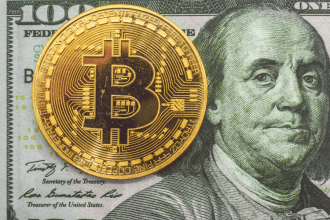Bitcoin (BTC) and other crypto prices have hit a pause after rising sharply with Donald Trump’s win in the US election. Concerns are growing that the $4 trillion crypto market might burst soon. BTC soared close to $110,000, boosted by Elon Musk’s leaked plans for crypto in the White House.
Amidst the leaked crypto plans that show signs of a possible ‘financial crisis’, Jerome Powell, head of the Federal Reserve (Fed), is encouraging Wall Street to embrace BTC and crypto. ‘Banks are perfectly able to serve crypto customers as long as they can understand and service the risks’, Powell said.
Powell also mentioned that Wall Street banks need to be confident that their BTC and crypto moves are secure. Firms, like BlackRock, the largest asset manager, have jumped into BTC and crypto in 2024, helping to normalise the market.
Various BTC exchange-traded funds (ETFs) helped make these assets more accepted in the financial world and online casino industry, boosting Bitcasino io experiences for players. Many believe that Powell’s remarks show a big change in attitude under Trump compared to the Biden era, which had a hostile stance on crypto.
Under Biden, BTC and crypto firms said they faced a silent plan to ‘debunk’ an unofficial policy, cutting off key services and making it hard to run their businesses. This was called ‘Operation Choke Point 2.0’, echoing a past US plan to restrict sectors seen as high risk for fraud.
Trump’s move toward crypto began with his non-fungible token (NFT) collections, then grew to back a US BTC stockpile, and ended with a debated Trump-branded meme coin. This shift has caused regulators and government agencies to change their stance on the tech.
Meanwhile, Trump is keeping his promise to hit goods from Canada, Mexico, and China with high tariffs, which is feared to spark a trade war worldwide. His new order will add a 25% tariff on imports from Canada and Mexico, along with a 10% tariff on China and Canadian energy and oil.
Indian crypto holders face tax penalty
Crypto traders in India could face hefty tax penalties on profits they haven’t reported due to new changes in tax laws. Under the new rules, crypto will fall under Section 158B of the Income Tax Act, which deals with undisclosed income.
Finance Minister Nirmala Sitharaman announced this in the Union Budget for 2025. This update means that gains from crypto will be treated like other assets, such as cash, jewellery, and gold, and are subject to block assessments if not reported.
‘Crypto asset has been defined in section 2(47A) of the Act under the existing definition of Virtual Digital Asset[…] A reporting entity, as may be prescribed under section 285BAA of the Act, will be required to furnish information of crypto asset’, the new amendment states, classifying crypto as Virtual Digital Assets (VDAs).
The new crypto tax rule will take effect on February 1, 2025. By the end of December 2024, India’s Finance Minister, Pankaj Chaudhary, revealed that the government found 824 crore rupees (about $97 million) in unpaid GST from various crypto exchanges.
This news followed a demand from Indian law enforcement for 722 crore rupees (around $85 million) in unpaid taxes from Binance in August 2024, surprising crypto users reading a Bitcasino review. To show their concern for crypto holders, Indian officials plan to impose a tax penalty as high as 70% on undisclosed crypto profits.
This penalty could affect crypto gains not reported for up to 48 months after the tax year in question. The changes in crypto law took effect after the Bybit exchange halted its services in India on January 10, 2025.
The exchange’s services were stopped due to pressure from regulators while it sought a full license from India’s Financial Intelligence Unit. In June 2024, the global focus on crypto tax laws grew after the US Internal Revenue Service (IRS) announced new rules. For the first time, US crypto trades will need third-party tax reports.
From 2025, centralised crypto exchanges and other brokers will have to report sales and swaps of virtual assets, including crypto. Anndy Lian, a blockchain expert, said that this move is expected to drive crypto investors to use decentralised platforms, creating a tricky issue that makes tracking tax money harder.
In response to the crypto industry’s pushback, the Blockchain Association sued the IRS in December 2024. They claim the rules are not fair since they label decentralised exchanges as ‘brokers’, which forces them to meet data rules.
With uncertainty surrounding the crypto market, some are expressing their concern about whether the industry is poised for growth or downfall. Despite the challenges many crypto users are still looking forward to a brighter future, believing these obstacles will further strengthen the industry.














